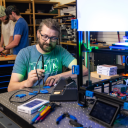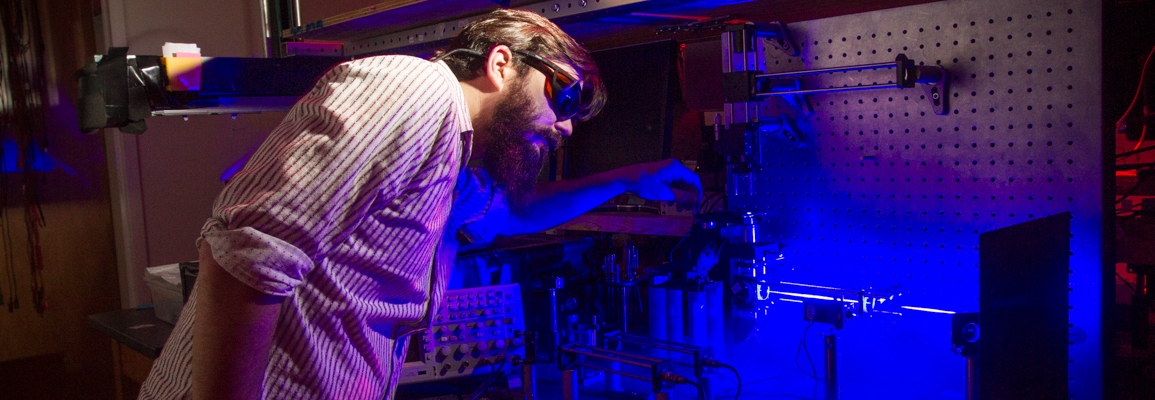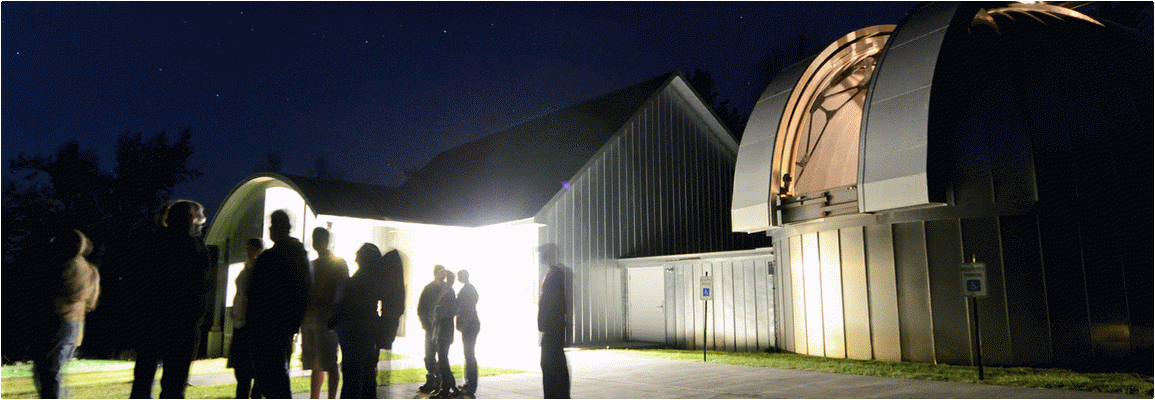The Departmental of Physics curriculum combines fundamental physics courses with hands-on laboratory training and research projects.
We have a dedicated faculty and staff that support such student participation with state-of-the-art research laboratories, observatories and other educational programs that will enhance the students' future professional prospects.
The flexibility of the curriculum permits interdisciplinary exploration, not only among the physics and astronomy disciplines, but also the other STEM fields such as biology, chemistry, geology, environmental sciences, mathematics and computer science.
We expect our curriculum to result in physics graduates who are capable of applying and adapting their undergraduate education in a variety of scientific, teaching or engineering professions, as well as future educational endeavors.
News

Dr. Zach Russell discusses NC Innovation research on Spectrum News
Two NC Innovation grant recipients explain how their research is moving from the lab into the real world. Dr. Zachary Russell of Appalachian State Uni...

CAS Senior Spotlight: Jess Horton
BOONE, N.C. — Jess Horton’s path at App State has been one defined by resilience, discovery, and an evolving passion for science. Horton, of Charl...

AI-powered microscopy aims to save North Carolina farmers millions [faculty featured]
Intestinal parasites quietly take a heavy toll on livestock across North Carolina and the Southeast. The losses aren’t small — they cut deep into ...

App State alumnus Dan Blakeley ’15 ’18 helps veterans find their voice
BOONE, N.C. — Appalachian State University held its annual Veterans Day Ceremony on Tuesday, Nov. 11, to honor the men and women who have served in ...

Physics major Cade Tischer joins CAS Corps
The College of Arts and Sciences (CAS) Corps are chosen to serve as representatives to all constituents of CAS and to create, promote and execute oppo...

